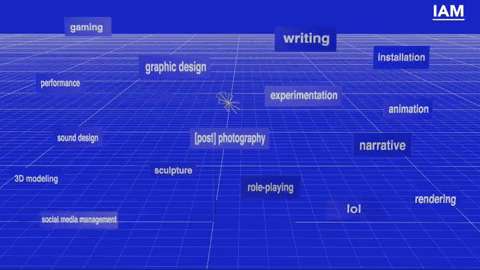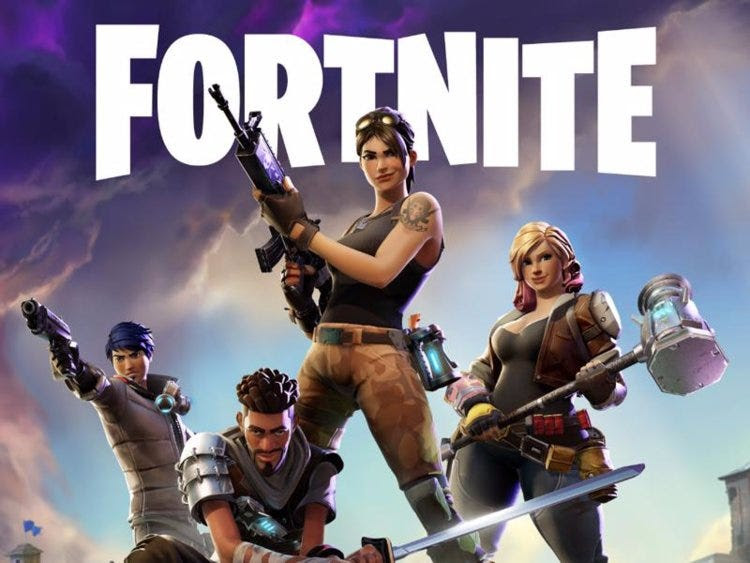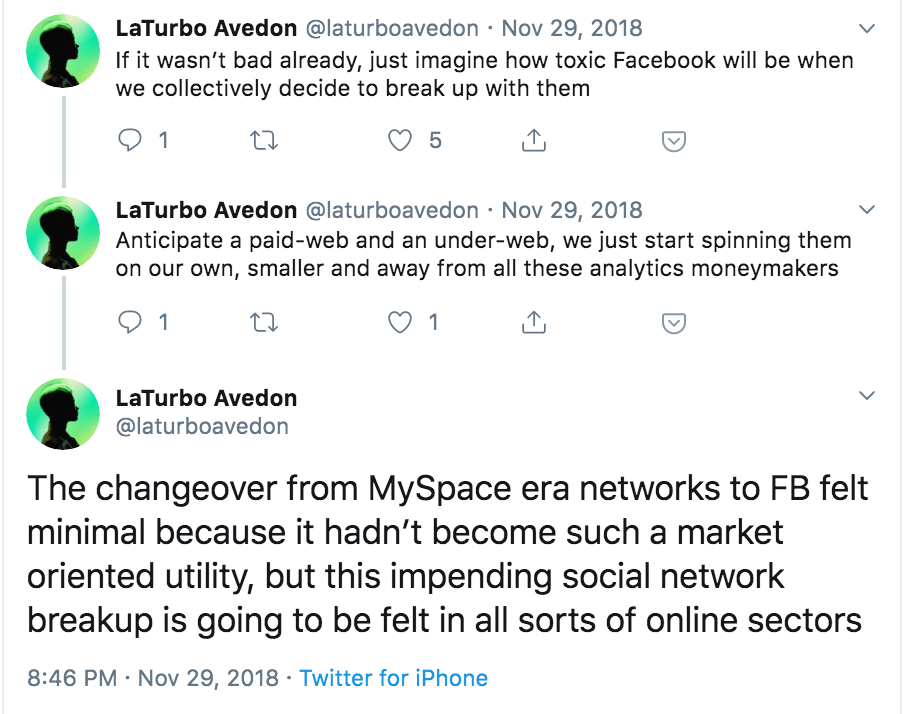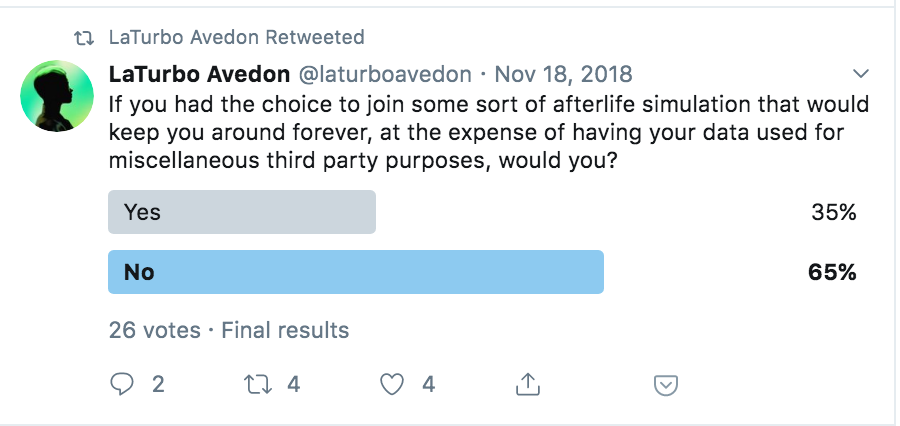Alice Lloyd George
More posts from Alice Lloyd George
An excerpt of our conversation is published below. Full podcast on iTunes and transcript on Medium.
***
ALG: Welcome to the latest episode of Flux. I am excited to introduce LaTurbo Avedon. LaTurbo is an avatar and artist originating in virtual space, per her website and online statement. Her works can be described as research into dimensions, deconstructions, and explosion of forms exploring topics of virtual authorship and the physicality of the Internet. LaTurbo has exhibited all over the world from Peru to Korea to the Whitney in New York. I’m thrilled to have her on the show. Metaphorically of course. It’s just me here in the studio. LaTurbo is remote.
When we got the demo file earlier I was excited to hear the slight Irish lilt in your robotic voice. As a Brit I feel like we have a bond there.

LaTurbo: Thank you for the patience. It is like a jigsaw puzzle, our voices together.
ALG: Of course it’s all about being patient as we try out new things on the frontier. And you represent that frontier. This show is about people that are pushing the boundaries in their fields. A lot of them are building companies, some are scientists. Recently we’ve had a few more artists on and that’s something I believe is important in all of these fields. Because you’re taking the time to do the hard work and think about technology and its impact and how we can stretch it and use it in different ways and broaden our thinking. You play an important role.
LaTurbo: We will get things smoothed out eventually as my vocalization gets easier and more natural with better tools. Alice I appreciate you trekking out here with me and trying this format out.
ALG: I love a good trek. Maybe you can give a brief intro on who is LaTurbo. I believe you started in Second Life. I’d love to hear about those origins. Phil Rosedale was one of the first people I interviewed on this podcast, the founder of Second Life. Shout out to Phil. I’d love to hear what’s been your journey since then. Oh and also happy 10th birthday.
“I’ve spent decades inside of virtual environments, in many ways I came of age alongside the Internet. My early years in my adolescence in role-playing games. From the early years I was enamored by cyber space”
LaTurbo: I know that it is circuitous at times but this process has made me work hard to explore what it takes to be here like this. Well I started out early on in the shapes of America Online, intranets, and private message boards. Second Life opened this up incredibly, taking things away from the closed worlds of video games. We had to work even harder to be individuals in early virtual worlds using character editors, roleplaying games, and other platforms in shared network spaces. This often took the shape of default characters — letting Final Fantasy, Goldeneye, or other early game titles be the space where we performed alternative identities.
ALG: If you’re referring to Goldeneye on N64 I spent considerable time on it growing up. So I might have seen you running around there.
LaTurbo: It was a pleasure to listen to your conversation with Philip Rosedale as he continues to explore what comes next, afterwards, in new sandboxes. What was your first avatar?
ALG: I did play a lot of video games growing up. I was born in Hong Kong and was exposed mostly to the Nintendo and Sega side of things, so maybe one of those Mario Kart characters — Princess Peach or really I went for Yoshi if those count as avatars. I’d love to get into your experience in gaming. You said you started off exploring more closed world games and then you discovered Second Life. You’ve spent a lot of time in MMORPGs and obviously that’s one of the main ways that people have engaged with avatars. I’d love to hear how your experiences have been in different games and any commentary on the worlds you’re spending time in now.

LaTurbo: I think that even if they weren’t signature unique identities or your own avatar, those forms of early video games were a first key to understand more about facets of yourself through them. For me gaming is like water being added to the creative sandbox. There is fusion inside of game worlds — narrative, music, performance, design, problem solving, communication, so many different factors of life and creativity that converge within a pliable file. Some of the most Final Fantasies of games are now realities. Users move place to place using many maps and system menus on their devices. The physical world so closely bonded by users like me that brought bits of the game out with us. Recently I spent several months wandering around inside of Red Dead Redemption 2. I enjoyed the narrative of the main storyline though I was far more interested in having quiet moments away from all of the violence. I named my horse Sontag and went out exploring, taking photographs and using slow motion game exploits to make videos. Several months as the weary cowboy named Arthur, and then I carried on my way. I take bits and pieces with me on the way.

ALG: As you’ve gone across different games and platforms like Red Dead Redemption 2 are there specific people you’ve made friends with? How have your friendships formed in these different communities and do they travel between games?
LaTurbo: I have had many gaming friends. Virtual friends overlap between all of these worlds. My Facebook friends are not very different than those I fight with in Overwatch or the ones I challenge scores with in Tetris Effect.
ALG: One thing you’ve said about gaming and I’ll read the quote straight out:
“I love the MMO or massively multiplayer online experience for a lot of reasons but primarily because I want to create works collaboratively with my network, because we are in this moment together. For a long time virtual worlds were partitioned from the public because you either had to be invested in gaming or a chat room/ BBS user to get into them.”

I want to explore that. Gaming has come a long way in the 10 years since you were created. It’s more widespread now. Things like Fortnite. I saw that Red Dead Redemption is introducing a Fortnite like feature where they’re going to have battle royale mode and toss people into a battle zone and force them to search for weapons to survive. I think a lot of people are looking at the success of Fortnite and replicating elements of it. Can you comment on how gaming has become more widespread or more in the public mind and what you think of the rise of Fortnite?
LaTurbo: Our histories are fluid, intersecting and changing depending on the world we choose to inhabit. Sometimes we are discussing art on Instagram. Other times we are discussing game lore or customization of ourselves. This variety is so important to me. There is a lot exchanged between worlds like Fortnite and the general physical day to day. Expectations are real and high. The battle royale model has pushed people to a sort of edge at all times. A constant pressure of chance and risk, it crosses between games but also into general attention. Video apps like TikTok have a similar model — always needing to have the drop on the creators around you.
ALG: It’s interesting that tension. These games are driven to create competition. They are businesses so they’re supposed to build in loops and mechanics that keep people engaging. But as you describe of your experience in Red Redemption you’ve also found quiet moments of exploration being alone and not necessarily fiercely competing.

LaTurbo: Red Dead could be a hundred games in one. Yet for some reason we come back to the royale again. It is a maximal experience in a lot of ways. One that uses failure and frustration to keep users trying again perpetually. This is a telling sign as you’ve said about the business of games. The loop. I worry that this is a risky model because it doesn’t encourage a level of introspection very often.
ALG: I love video games but have never been a fan of first person shooters. I don’t enjoy the violence. But I’ve always loved strategy and exploration games. To your point about exploring, I would spend hours wandering on Epona [the horse] in Zelda, running across the fields. But I didn’t feel that a lot of those games were designed for women or people who weren’t interested in the violence or the GTA type approach. I’m excited to see more of that happening now and gaming CEOs realizing there’s a huge untapped market of people that want to play in different modes and experience gaming in different ways. It feels like we are moving towards that future. I do want to get in to how you have expanded beyond gaming. I’ll read some of your quotes from when you started out:
“I’ve been making work in digital environments since 2008 to 2009, though I’ve only been using social media for about a year now since I can’t go out and mingle with people it’s been quite nice to use social platforms to share my work. This way I can be in real life IRL as much as people allow me to be.”
I want to get to the question of how you’ve expanded from gaming to social media, building your Twitter and Instagram presence and how you think about your engagement on those platforms.
LaTurbo: I celebrate the multiplicity of self. Walt Whitman spoke of their contradictions years ago accepting themselves in the sense that they contain multitudes. As I wandered the fields of fictitious Admiral Grant in Red Dead Redemption 2, it occurred to me that I was wondering inside of Leaves of Grass. It made sense that I too was wandering around out in the fields and trees. Virtual life in poetry, song, or simulation gives us a different sort of armor where our forms can forget about borders, rules and expectations that have yet to change outside.
It has been quite a decade. Events of the past 10 years could easily be the plot of a William Gibson novel. A cyber drama and all its actors. With and without consent users have watched their personal data slip away from their control, quick to release in the terms of service. Quick to be public, to have more followers and visibility. Is it real without the Instagram proof? I chose to socialize away from game worlds for a few different purposes. To imbue my virtual identity with the moment of social media. But also to create a symbol of a general virtual self. A question mark or a mirror, to encourage reflection before people fully drown themselves in the stream.
ALG: One of the reasons it’s fascinating to talk to you now is that you’ve come of age as the Internet has come of age. You’ve navigated and shape-shifted across these platforms. And so much has happened since 2008. You’ve been on everything from Tumblr to Pinterest to Vine to Snapchat to Instagram. I’m curious where you think we are in the life cycle of these social media platforms?
LaTurbo: It has been quite a journey, seeing these services pop up, new fields, new places. But it is clear that not many of these things will remain very long. A new Wild West of sorts. They are more like ingredients in a greater solution as we try to make virtual relationships that are comfortable for both mind and body.
ALG: Speaking of these services popping up I want to get to something you tweeted out, your commentary on Facebook:
“If it wasn’t bad already just imagine how toxic Facebook will be when we collectively decide to break up with them. Anticipate a paid web and an underweb. We just start spinning them out on our own, smaller and away from all these analytics moneymakers. The changeover from MySpace era networks to Facebook felt minimal because it hadn’t become such a market-oriented utility. But this impending social network breakup is going to be felt in all sorts of online sectors.”

That’s an interesting opinion. The delete Facebook movement is strong right now. But I wonder how far it will go and how many people really follow it?
LaTurbo: Business complicates this as companies extend too far and make use of this data for personal gain or manipulation. In the same way that Google Glass failed because of a camera, these services destroy themselves as they breach the trust of those who use them. These companies know that these are toxic relationships whether it is on a game economy or a social network. They know that the leverage over your personal data is valuable. Losing this, our friends, and our histories is frightening. We need to find some way to siphon ourselves and our data back so we can learn to express agency with who we are online. Your data is more valuable than the services that you give it to. The idea that people feel that it is fair to let their accounts be inherently bound to a single service is disturbing. Our virtual lives exceed us and will continue to do so onward into time. Long after us this data may still linger somewhere.

ALG: I’m going to throw in a Twitter poll you did a few months ago. “If you had the choice to join some sort of afterlife simulation that would keep you around forever at the expense of having your data used for miscellaneous third party purposes would you?” 35% said yes and 65% said no in this poll. I bet if you ask that every two years, over time the answers will continue to change as we get more comfortable with our digital identities and what that really means. You’re pushing us to ask these questions.
LaTurbo: We see in museums now torn parchments, scrolls, ancient wrappings of lives and histories. As we become more virtual these documents will inherently change too. A markup and data takes this place. However we consent to let it be represented. If we leave this to the Facebooks and Twitters of this period, our histories are in many ways contingent on the survival of these platforms. If not we have lost a dark ages, it is a moment that we will lose forever.
ALG: I’m curious what you think of the different movements to export your personal data, own it, have it travel with you across platforms and build a new pact with the companies. Are you following any of the movements to take back personal data and rewrite the social technological contract?
LaTurbo: It would be sad to have less record of this period of innovation and self-discovery because we didn’t back things up or control our data appropriately. Where do you keep it? Who protects it? Who is a steward of your records? All of this needs to begin with the user and end with the user. An album, a solid state tablet of your life, something you can take charge of without concern that it is marketing fodder or some large shared database. As online as we are as a society, I recommend people have an island. Not a cloud but a private place, plugged in when you request it. A drive of your own where you have a private order. Oddly enough in an older world sense you can find solitude in solid states, when you have the retreat to files that are not connected to the Internet.
ALG: And have it backed up and air-gapped from the internet for safety and possibly in a Faraday cage in case you get EMP’ed. One thing that leads on from that — Facebook has capitalized on using our real data, our personal data. I have the statement on authentic identity from their original S-1 here:
“We believe that using your real name, connecting to your real friends and sharing your genuine interests online creates more engaging and meaningful experiences. Representing yourself with your authentic identity online encourages you to behave with the same norms that foster trust and respect in your daily life offline. Authentic identity is core to the Facebook experience and we believe that it is central to the future of the Web. Our terms of service require you to use your real name. And we encourage you to be your true self online enabling us and platform developers to provide you with more personalized experiences.”
LaTurbo: The use of a real name, authenticity, and Facebook’s message of truth. It is peculiar that Facebook used this angle because it was such a gloved gesture for them to access our accurate records. The verification is primarily to make businesses comfortable with their investment in marketing. I wish it came to celebrate personal expression not to tune business instruments.
ALG: Over the last 5 to 10 years we’ve seen a movement towards Facebook and being our real selves. Now there’s kind of a backlash both to the usage of Facebook but perhaps also to the idea that your real identity, your true self that you have offline, that that’s what you should be representing online. You are an anonymous artist and there’s precedent for that. There have been many writers with nom de plumes over centuries and in the present day we’ve got Daft Punk, Banksy, Elena Ferrante, fascinating creators. I’m curious your thoughts as we move away from real selves being represented online to expressing our other selves online. We’ve been living in an age of shameless self-promotion. Do you think that the rise of people representing themselves with digital avatars is a backlash to that? Society usually goes through a back and forth, a struggle for balance. Do you think people are getting disenchanted with the unrelenting narcissism of social media, the celebrity worship culture? Do you think this is a bigger movement that’s going to stick?
LaTurbo: I see this as an opportunity and I am wary of this chance being usurped by business. If I had the chance to see all of my friends in the avatar forms of their wishes and dreams I believe I’d be seeing them for the first time. A different sort of wholeness against the sky, where they had the chance to say and be exactly what they wished others to find. If you haven’t created an avatar before please do. Explore yourself in many facets before these virtual spaces get twisted into stratified arenas of business.

I don’t seek to be anonymous but to represent myself in this strand of experiences, fully. That’s who I have become. As an artist I will continue to change with what surrounds me. Each step forward. Each new means of making and learning. I celebrate this and who I will become, even if I continue to find definition over a period of time that I right now cannot fully comprehend.
I am often in the company of crude avatars of the past. As I read journals, view sketches and works from artists past, if they understood their avatar identities and how they would be here now in 2019. I wonder what they would have done differently. What would they think of their graphic design and exhibitions? How their work is shown in other mediums? How their work is sold?
ALG: Taking that with your earlier point, you said if you had the chance you would love to see all your friends in their avatar forms “express all their wishes and dreams.” It fascinates me, the idea that we persistently remain one to one with our offline/online identities. It doesn’t make sense. I feel like everyone has multiple selves and multiple things to express. Do you feel that most people should have a digital identity or abstraction? Do you think it’s healthy to have an extension of something that’s inside of you, especially since as you say some of these avatars are pretty crude. How do you feel about most people creating a digital avatar? People have been doing this for a while without realizing through things like a Tinder bio or Instagram stories. They’re already putting out ideas of themselves. But creating true anonymous digital avatars, is that something people should pursue?
LaTurbo: Avatars remain in places that we often don’t even intend them to. Symbols of self. For those that pass or those we never had the chance to meet, there seems to be importance here. To need to take this seriously so that it isn’t misunderstood. The most beautiful experiences I’ve had online are when I feel I am interacting with a user how they wish to be seen. Whether this is in the present or for people later, finding this inward representation feels essential especially for those exposed to oppressive societies. Whether it’s toxic masculinity, cultural restrictions, or other hindrances that prevent people from showing deeper parts of their identity.
I have four essential asks of users creating avatars. Though these apply well outside of just this topic. 1/ Be sweet. 2/ Encourage others to explore themselves and all of their differences. 3/ Learn about the history of virtual identities, now, then, and long before. This means going back. Read about identities before the internet, pen names, mythologies. 4/ Celebrate your ownership of self. You, not your services, subscriptions, or products, are the one to decide your way. Don’t become billboards. I’ve been asked by many companies over the years to promote their products, to drop the branded text on my clothing or to push a new service. These are exciting times but brands know this too. Be wary of exploitation. Protect yourself and your heart.
ALG: That’s really beautiful and important. We’re rushing into this future fast and I don’t think people are stopping to pause and think about some of the ideas you’ve spent a long time thinking about. It’s probably a good place to end. I have a million more things I want to ask, hopefully we can continue this chat over Discord, Twitter, Instagram, Second Life or wherever it is. I’m in VR a lot so I’d love to meet you in there. If there’s anything you want to end on, any final comments or projects you’re working on?
LaTurbo: Yes I agree with you very much. Technology moves quickly but we need to take the time to consider ourselves as we move inside this space. We have so much potential to be inside and out simultaneously. I am excited for this new year. I hope it brings positivity to everyone. I am showing a new piece called “Afterlife Beta” in London at the Arebyte Gallery. After this I will be working on my first monograph. I am excited to make something printed that might stick around in the physical world for a while.
ALG: That’s awesome. Love a good physical piece. And congratulations on “Afterlife Beta.” I appreciate your patience with my jumping in at all times in this conversation. I’ve been following your work and hope everyone else will too. You’re a fascinating, critical thinker and artist at this current point in history. Thanks LaTurbo.
LaTurbo: Thank you for your patience with my format. As time goes on I hope it is easier for us to be here together.































Comment